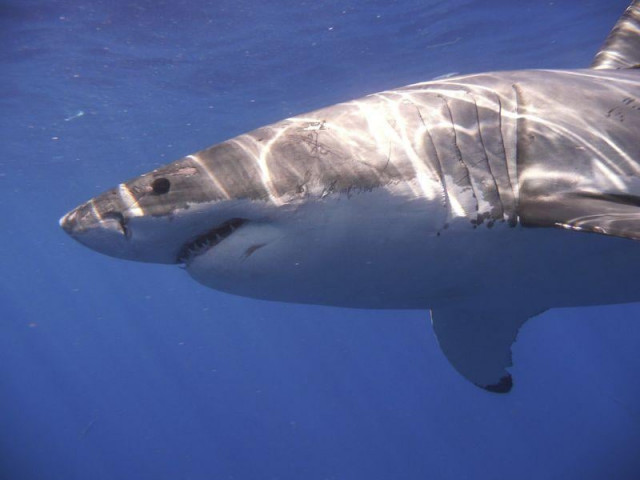WWF-P lauds conservation of whale sharks in Pakistan
No fatalities reported since 2019, around 110 of the gentle giants released in recent years

Commemorating World Whale Shark Day on Sunday, the World Wide Fund for Nature-Pakistan (WWF-P) appreciated efforts towards the conservation of whale sharks in the country.
A total of 110 whale sharks have been safely released by trained fishermen since the start of WWF-P's observer programme. Moreover, no case of whale shark mortality has been reported by fishers in 2019 and 2020 thus far.
At an online session, attended by over a 100 students of the University of Karachi, Lasbela University and members of the WWF Network, WWF-P technical adviser Muhammad Moazzam Khan noted that a healthy population of whale sharks had been reported from Pakistani waters.
However, the species faced threats such as frequent entanglement incidents in fishing gear, habitat degradation, marine pollution and more, added Khan.
While the whale shark can be found all along Pakistan's coast, the waters between Ras Malan and Charna Island and offshore the Indus Delta - between Khajar and off Ghora Bari - are particular hotspots for the species, he said, adding that Charna Island in particular - being considered as a Marine Protected Area - was an important basking, feeding and breeding area for whale sharks.
Meanwhile, WWF's Global Shark and Ray Conservation Programme leader Dr Andy Cornish observed that whale sharks were gentle giants. They have huge mouths, distinctive white spots and are massive in size, he said, adding that despite being protected in most countries and under regional and global conventions, their populations continued to decline.
The whale shark is classified as an endangered species, according to the International Union for Conservation of Nature Red List. It is also included in Appendix-II of the Convention of International Trade in Endangered Species of Wild Fauna and Flora (CITES) as well as proposed to be included in Appendix-I of the Convention on the Conservation of Migratory Species of Wild Animals. Furthermore, it is covered under other international instruments such as the Indian Ocean Tuna Commission of which Pakistan is a member.



















COMMENTS
Comments are moderated and generally will be posted if they are on-topic and not abusive.
For more information, please see our Comments FAQ